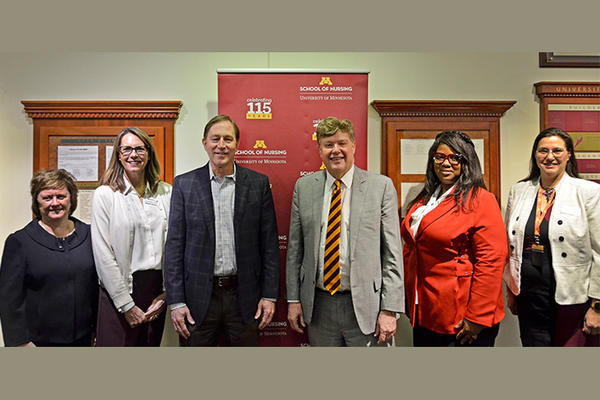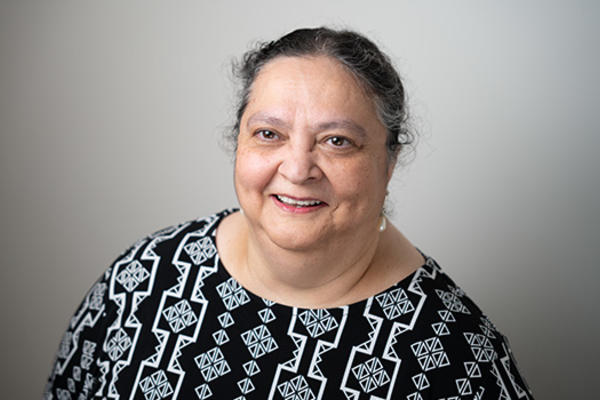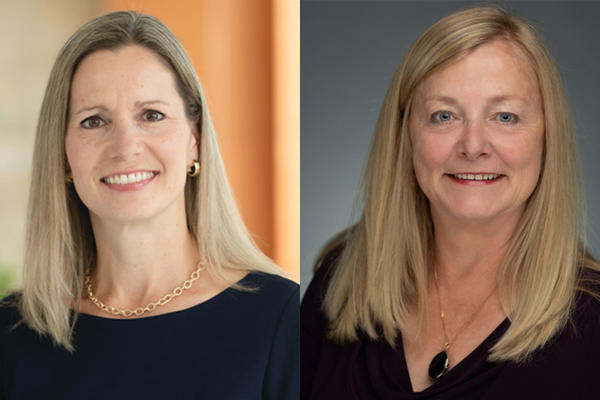BSN Student Recognized for Adolescent Health Research
September 26, 2016
This week BSN student Isatou Cham presented her research findings on diabetes care for adolescents at the fifth annual Pathways to Research program reception sponsored by the Clinical Translational Science Institute.
Cham was one of 10 undergraduate students selected from across the country for the 2016 summer research program. Cham produced and presented a literature review of research on her topic. Her mentor was Assistant Professor Barbara Beacham, PhD, RN, whose research is focused on children with chronic health conditions and family issues.
We asked Cham about her experience.
Q. What was your research project?
A. Since adolescents with type 1 diabetes mellitus have poor glycemic control and poor diabetes treatment adherence, my project examined how parent-relationship, communication and adolescent autonomy influence adolescent type 1 diabetes mellitus outcomes.
Q. What did you learn about the issue?
A. I have more understanding of the important role parents and families play in adolescent type 1 diabetes outcomes. I found that collaboration between the parent and adolescent during treatment is associated with better diabetes control. I learned that glycemic control and treatment adherence is poor when the parents are over-involved and under-involved. Adolescents do better when parents share the responsibility of the diabetes care, have positive communication, and child-centered parenting. Parent support of adolescent autonomy is associated with better quality of life for the adolescent. I also found that mothers are the main caregivers and take most of the adolescent’s diabetes responsibilities compared to fathers.
Additionally, I learned that the diabetes can have an impact on the entire family. Many parents of children with type 1 diabetes suffer from psychological distress. The parents sometimes blame themselves when their child is diagnosed. They suffer from anxiety even after many years. Therefore, it is important for the nurse to not just know how to treat and educate the family on diabetes care but to also understand the impact of diabetes on the adolescent and their families in order to help them with the right resources.
Q. Did this summer opportunity change your perspective about nursing or health care?
A. It has definitely changed my perspective on nursing and the roles of nurses. I learned more about the role of nurses from a research lens. It has helped me understand the importance of knowing how to do research as a nurse. I want to be a Women's Health nurse practitioner because of the high rate of maternal and infant mortality in developing countries. Therefore, understanding research will help me make more of a difference if I understand the reason infant and maternal mortality is high.
This research has also taught me more about the influence nurses have on their patients’ lives, especially adolescent type 1 diabetes patients. Usually, when the adolescent and their parents are newly diagnosed, they are heartbroken by the diagnosis and uncertain how it changes their lives. However, the nurse’s reassurance and therapeutic communication help families to be more hopeful about their child's future and the changes they have to make.
Q. What are your plans after graduation?
A. I came from Gambia, West Africa, where the rate of maternal and infant mortality is high, so I am interested in maternal-child health. My plan is to earn both a PhD and a DNP in women's health. The reason I am interested in pursuing a PhD is because I want to understand the reasons maternal and infant mortality rates are high in developing countries. I plan to go back to Gambia someday to help make a difference in the health care especially in the area of maternal-child health.


